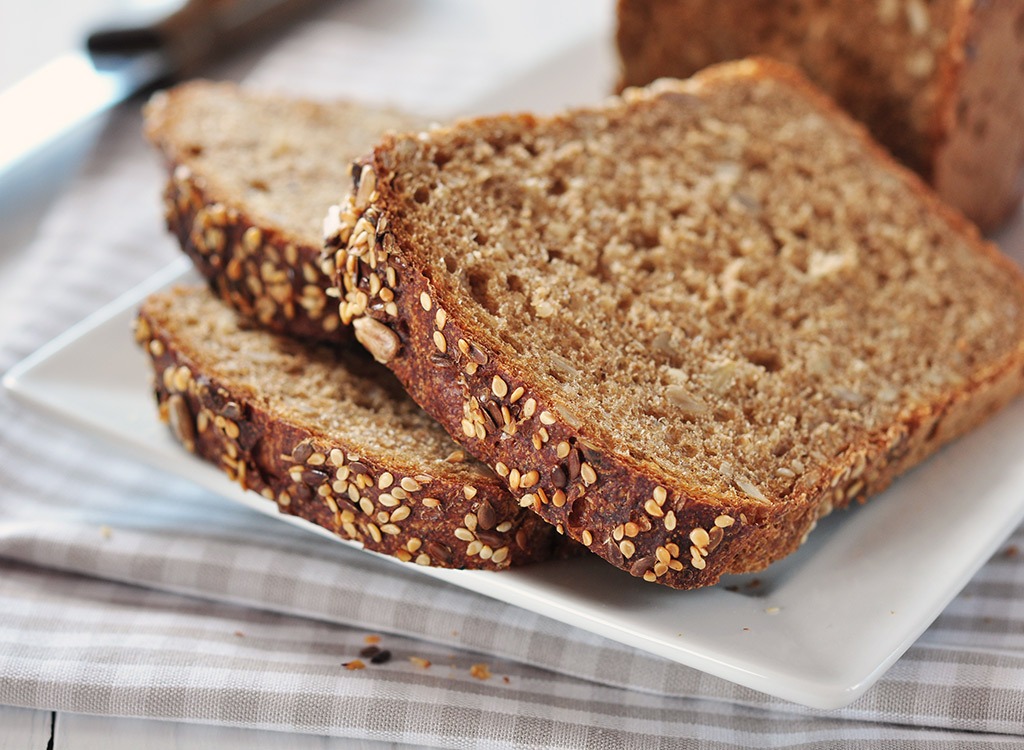Savvy Food Swaps

Adopting a healthier diet does not have to be difficult. And of course the ultimate question is, where do I start? The best way to start is with a few simple changes, sticking to them, and then adding more over time. This leads to lasting behavior change and healthy eating becomes a lifestyle, not a quick diet.
Focus On Lean Protein.
 For most people when they hear the
word protein their first thought goes to meat, and usually red meat. Protein is
abundant in animal sources but also in plant-based sources, which are usually a
better choice due to their fiber and other valuable, disease-fighting
nutrients. A recent study that shocked the nation revealed that eating too much
red meat (beef, pork, lamb) and processed meats (luncheon meat, hot dogs, and
sausages) can lead to cancer. But it's not all bad news. Limiting red and
processed meats in the diet makes more room for fish, lean animal proteins such
as turkey and chicken, low-fat dairy products, eggs, beans and lentils, nuts
and seeds, grains such as quinoa and buckwheat, and soy products such as tofu
or edamame.
For most people when they hear the
word protein their first thought goes to meat, and usually red meat. Protein is
abundant in animal sources but also in plant-based sources, which are usually a
better choice due to their fiber and other valuable, disease-fighting
nutrients. A recent study that shocked the nation revealed that eating too much
red meat (beef, pork, lamb) and processed meats (luncheon meat, hot dogs, and
sausages) can lead to cancer. But it's not all bad news. Limiting red and
processed meats in the diet makes more room for fish, lean animal proteins such
as turkey and chicken, low-fat dairy products, eggs, beans and lentils, nuts
and seeds, grains such as quinoa and buckwheat, and soy products such as tofu
or edamame.
Sneak In Whole Grains.
 Everyone should strive to make at
least half of their grains each day whole grains. An average serving of grains
for the day is six, so three servings (of whole grains) is a good goal. Whole grains may help reduce
the risk of developing type 2 diabetes, heart disease, and stroke and contain
fiber and many vitamins and minerals. Making the switch is easier than ever. Whole
grains can be found in the form of whole wheat flour, which can be used to make
bread, waffles, pasta and other products, brown rice, wild rice, oats, quinoa,
millet, barley, and popcorn, to name a few. Most common grain products have a
whole grain counterpart; English muffins, pierogis, and tortillas are all
examples.
Everyone should strive to make at
least half of their grains each day whole grains. An average serving of grains
for the day is six, so three servings (of whole grains) is a good goal. Whole grains may help reduce
the risk of developing type 2 diabetes, heart disease, and stroke and contain
fiber and many vitamins and minerals. Making the switch is easier than ever. Whole
grains can be found in the form of whole wheat flour, which can be used to make
bread, waffles, pasta and other products, brown rice, wild rice, oats, quinoa,
millet, barley, and popcorn, to name a few. Most common grain products have a
whole grain counterpart; English muffins, pierogis, and tortillas are all
examples.
Cut Back On Added Sugar.
 What is added sugar? It is sugar that
is not naturally occurring in the product. For instance, a banana is a natural
source of sugar; however, banana bread usually has sugar added to it in
addition to the naturally sweet bananas. Words to look for on food labels are: sugar, brown sugar, corn sweetener, corn syrup, fruit juice concentrates,
high-fructose corn syrup, honey, invert sugar, malt sugar, molasses, raw sugar,
syrup, and sugar molecules ending in "ose" such as dextrose, glucose, or sucrose. Added sugar can be found in almost anything, pasta sauce, yogurt, desserts, candy,
packaged products, beverages, and a majority of frozen foods. Use fresh or
frozen fruit to add sweetness to plain yogurt, use unsweetened applesauce in
dessert recipes to cut out some of the sugar, and compare food labels to make
the better choice when selecting a product.
What is added sugar? It is sugar that
is not naturally occurring in the product. For instance, a banana is a natural
source of sugar; however, banana bread usually has sugar added to it in
addition to the naturally sweet bananas. Words to look for on food labels are: sugar, brown sugar, corn sweetener, corn syrup, fruit juice concentrates,
high-fructose corn syrup, honey, invert sugar, malt sugar, molasses, raw sugar,
syrup, and sugar molecules ending in "ose" such as dextrose, glucose, or sucrose. Added sugar can be found in almost anything, pasta sauce, yogurt, desserts, candy,
packaged products, beverages, and a majority of frozen foods. Use fresh or
frozen fruit to add sweetness to plain yogurt, use unsweetened applesauce in
dessert recipes to cut out some of the sugar, and compare food labels to make
the better choice when selecting a product.
Cook Healthy At Home.
 Americans love to go out to eat. We
go out to celebrate a promotion, graduations, or just because we feel that we
don't have the time to cook. Meals don't have to be grand affairs every night
with hours spent over the stove. A balanced meal with a protein, serving of vegetables
or fruit, and a whole grain is the perfect place to start. To avoid the dreaded
drive-thru window, prepare meals in bulk ahead of time and pull them out of the
freezer when you need them. Also, use lighter methods of cooking such as
grilling, baking, broiling, or steaming, instead of frying.
Americans love to go out to eat. We
go out to celebrate a promotion, graduations, or just because we feel that we
don't have the time to cook. Meals don't have to be grand affairs every night
with hours spent over the stove. A balanced meal with a protein, serving of vegetables
or fruit, and a whole grain is the perfect place to start. To avoid the dreaded
drive-thru window, prepare meals in bulk ahead of time and pull them out of the
freezer when you need them. Also, use lighter methods of cooking such as
grilling, baking, broiling, or steaming, instead of frying.
Add Physical Activity.
 Exercise and eating right go hand in
hand. They are good alone, but better together. Thirty minutes a day, five days
a week of moderate activity is recommended for optimal cardiovascular health. This
could be going to the gym, playing a sport with family or friends, or taking
the dog for a brisk walk. Being physically active can also boost your mood and
give you more energy!
Exercise and eating right go hand in
hand. They are good alone, but better together. Thirty minutes a day, five days
a week of moderate activity is recommended for optimal cardiovascular health. This
could be going to the gym, playing a sport with family or friends, or taking
the dog for a brisk walk. Being physically active can also boost your mood and
give you more energy!
I'm someone who supports the idea of everything in moderation. I don't believe any food should ever be off limits in the diet. It's all about proper portion sizes, how often you're indulging, and how you plan on working it off. So incorporate these swaps and tips into your diet, indulge a little from time to time, and add exercise into your life to round it all out. Remember that balance is the key to making it all work.
Here's to a
healthy lifestyle!

Kiersten is a student on track to complete her BS/MS Degree in Dietetics at D'Youville College this May. From a young age she has enjoyed helping others and plans on using her degree to assist people who want to make healthy changes in their lives. In her spare time, she enjoys trying new recipes, traveling, and spending time with her family and friends.




